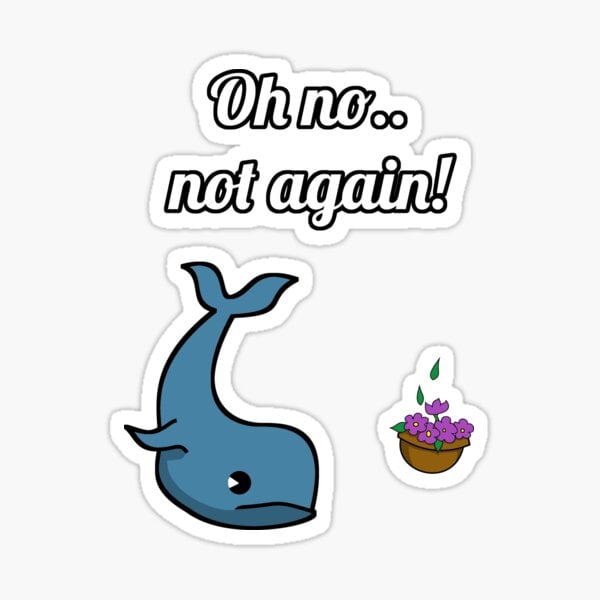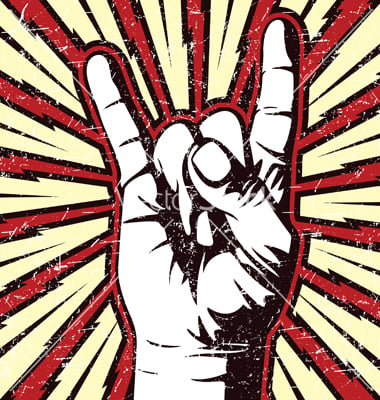I know Florida, Texas, and other counties have tried and succeeded to ban books, I wonder how that is even legal since we have the first amendment. I tried doing research on this since Huntington Beach is banning books and people were petitioning against that at the main library.
I made a little post asking people to petition on the Orange County sub.
They’re not banning you from selling, buying, owning, or reading the book, so it’s not an obvious first amendment issue.
They’re creating policies for which books various government institutions can use tax money to buy and make available.
They just happen to be targeting books that recognize the existence of minorities, which is shitty.
what’s far scarier is the revisionist history being pushed in many states and school districts.
Really just pulled from public schools and libraries.
deleted by creator
This is a school district not renting space at the school to a non-profit that intends to distribute the books. That’s a problem. The same thing happened to the after school Satan club. But framing it as “banning you from owning those books” doesn’t seem honest.
It’s plenty bad when publicly owned rental space is denied to some renters based on viewpoint discrimination. I hope they win their lawsuit. There’s no need to equate it with police raiding houses to confiscate books and arresting bookstore owners.
Yeah, this looks like a procedural issue.
I’d guess that the district was looking for a reason and found this violation of their procedures to deny the space as an excuse. There’s a chance that the lawsuit exposes some messeges or emails that reveal the true intention.
Bans often rely on the obscenity exception to the 1st Amendment:
https://constitution.findlaw.com/amendment1/first-amendment-limits--obscenity.html
SCOTUS has never given a clear, well-defined, repeatable test to say exactly what “obscenity” even means, so local jurisdictions are free to push the envelope.
If that sounds like a pile of bullshit waiting to be exploited, yes, and that’s exactly why we’re seeing this happening.
Anybody push back? Saying lgbt and civil rights stuff is not “obscenity”?
You try arguing with idiots
You should instead be trying to get rid of the ‘obscenity’ exception itself, not just work around it.
It’s not a 1A issue, though. The government isn’t restricting your ability to purchase or own the book, they’re just saying it can’t be used in schools.
I wish there was no obscenity exception. I think all media deserves to exist regardless of its obscenity as long as it’s not directly harming someone (like certain types of porn for instance)
The problem is the obscenity exception is also used for things like preventing someone from walking around a public park with a giant sign covered in gore porn. Something like that I think is obviously pretty okay to ban, but clearly it gets misused for a lot of homophobic/transphobic type stuff.
walking around a public park with a giant sign covered in gore porn
anti-abortion protesters have entered the chat
Just need to have a case for it being a political statement.
Most of these bans are not about banning those books in general, they are about not making them available in schools or public libraries. The government can decide what to promote in its own institutions. People can still get those books from elsewhere: they can buy them online or in physical bookstores.
Isn’t that kind of the problem, though? A private organization can certainly censor themselves as they see fit, but the US government should not, no?
There’s a limited amount of space for books in schools and public libraries, so they have to make some decisions what to have in them and what not.
Also I think this is mostly being done by state governments, not the US (federal) government.
In the Netherlands, only one book I know of used to be banned (maybe it still is). The publishing rights of the work in question were claimed by the state in this instance, and they refused to allow publication of the book. The book in question was the Dutch translation of Hitlers “Mein Kampf”.
As the author of that book is now dead since more than 70 years, the copyright has expired and it theoretically can be reproduced. It may be still on a list as ‘harmful for young persons’, propaganda or alike.
The Netherlands use the same copyright laws?
I always assumed that was just the US copyright system
European copyright laws are different from US ones in many ways, but “life of the author plus 70 years” is definitely a thing in Europe.
I really hope there isn’t a more generous system than what the US has. It’s stupid long as-is.
My assumption is that because “the state claimed the rights” for that specific book makes me think this is a special case in their laws
Can a US state or the federal government claim the right to someone else’s writing?
It was not directly the state claiming ownership of that book just because. After WWII ended, the alliites confiscated all assets of those who were deemed most responsible for the war including Adolf Hitler and his rights on Mein Kampf. This yielded later, as Munich officially was Hitler’s last place of residence, to the state of Bavaria owning the rights on that book.
The first ammendment isn’t unlimited there are a fair amount of restrictions. The ones that are allowed follow strict scrutiny, which is basically a two part test. There must be a compelling state interest, AND the law must use the least restive means possible to achieve that interest.
Most these book bans likely don’t meet that standard. They are allowed to exist because they are considered valid until ruled otherwise. To overrule these bans it would be required for someone to have standing that they are materially harmed by the ban. This is how most bans will stay, as proving someone has standing is pretty difficult in this case.
They’re also not banning the books, so there’s that. At least not in the sense that would require strict scrutiny in the situation OP is talking about.
When we talk about the legality of banning something, those laws are often on the federal level and apply to federal institutions. If an institution is state- or county-funded, they can have their own rules.
Not necessarily.
The incorporation doctrine of the 14th amendment applies the Bill of Rights to the states as well as federal government.
…No State shall make or enforce any law which shall abridge the privileges or immunities of citizens of the United States; nor shall any State deprive any person of life, liberty, or property, without due process of law; nor deny to any person within its jurisdiction the equal protection of the laws.
There’s a difference between a book being
- banned from curriculum
- banned from a school library
- requiring parental / guardian permission to be checked out (usually for x rated content)
- being outright “banned”
As long as they don’t come for internet access, kids can get around book bans with things like Libby.
What’s that? Republicans are proposing an internet book ban bill call KOSA? Well good thing we have divided goverment. It will never pass.
Wait? Biden is supporting it? Well, that doesn’t mean… wait, Elizabeth Warren is a cosposonser? Wtf?
I’m sorry, WHAT?
EDIT: Just looked it up and, if the Wikipedia summary is to be believed, it seems to only place restrictions on social media algorithmic feeds. Is that incorrect?
Checked wikipedia myself this morning. Looks like they switched it from the state attorney generals deciding what is “harmful content” to the FTC. Previously, an Anti-LGBTQ state attorney general could label any progressive website as bad and ban it for minors. (and because no one know how to age verification, that just means everyone). Now that only happens if Republicans get control of the whitehouse and appoint a activist to head the FTC.
No right is unlimited.
This is why people don’t trust liberals
Because they point out facts? Or do you really think there is an unrestricted right?
That is what the idea of human rights liberals profess to believe in necessitates, yes.
What those rights are, exactly, might be debatable, such as the difference between freedom of religion and freedom from religion, but you do believe in human rights, don’t you?
Edit: that’s a “No” I take it.
Thus, the lack of trust, and continued comments on what happens when liberals get scratched.
Can you give a concrete example so we can understand?
A concrete example of what?
Of course I believe in human rights, but I also think there are limits to it. And you didn’t answer my question, what right do you believe should be unrestricted?
Freedom from religion. The right to clean food and water. The right to self defense. The right to attempt escape from imprisonment. The right to a fair trial. The right to life, liberty, and security of person. The right of the abolition of slavery in all forms.
Feel free to argue that last one, btw, liberals love to carve out exceptions to it.
Not one of those do liberals have anything against – and in fact, much of which is championed by liberals. You are either trolling or are completely and utterly deluded with some kind of brainwash that makes you think you’re somehow not a liberal.
Every single conservative I know and have heard/read is quite against freedom from religion, quite against the right to clean food and water, quite for imprisonment of criminals even in a case as small as owning a marijuana plant, are quite happy to scowl at what they consider unfair trials (see: every conservative talking head about Trump’s trials), and are quite happy to “own the libtards” by depriving them of life, liberty, and security.
So, maybe you should take a long hard look at what it is you really believe in, because you’re more liberal than you think.
Dude thinks the two types of people on Lemmy are liberals and conservatives 🤣
Freedom from religion.
You’re not entitled to be free from people practicing their religion near you, e.g. you don’t have the right to not have churches in your block
The right to clean food and water.
You can’t invade someone’s property to get food and water.
The right to self defense.
A juri needs to agree self defense was required, you can’t kill someone because you thought he was going to do something to you without evidence of it.
The right to attempt escape from imprisonment.
That’s not a right most countries even recognize, in fact it is a crime on most countries to attempt to escape imprisonment, even if you are wrongfully detained by the state.
The right to a fair trial.
Fair is very relative, people get injustly put away constantly, just as much as guilty people are not. Even if we had 100% certainty on the conviction, people would disagree on the penalty, to some it’s not fair that a person who killed others gets to keep living, while to others it’s unfair that someone should be sentenced to death regardless of their crime. While I believe that this is the hardest one to answer of your points it is so because the word fair is very subjective, what if my idea of a fair trial is so different from yours that we can never conciliate both? Whose idea of fair trial is the one that gets implemented? Certainly the other will believe the trial was not fair.
The right to life
Unless you try to kill someone and he defends himself
liberty
Unless you commit a crime
and security of person.
Again, unless you threaten someone
The right of the abolition of slavery in all forms.
That’s another wording for freedom, by several metrics, prisoners are slaves.
None of those are unrestricted, which is what the original person said.
but you trust those who say you should have no rights?
Interesting assumption.
They didn’t ban books. That’s just fake news.









